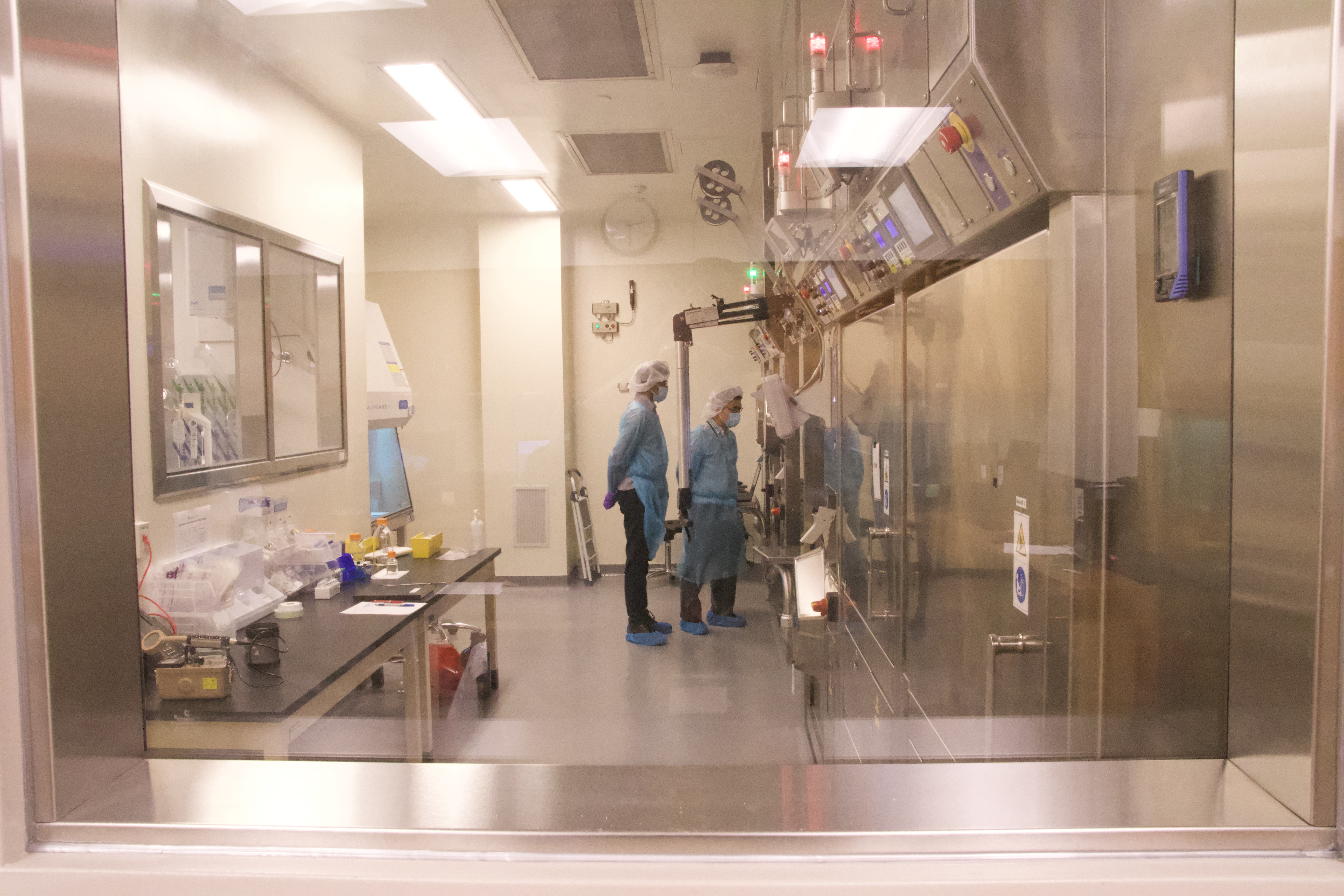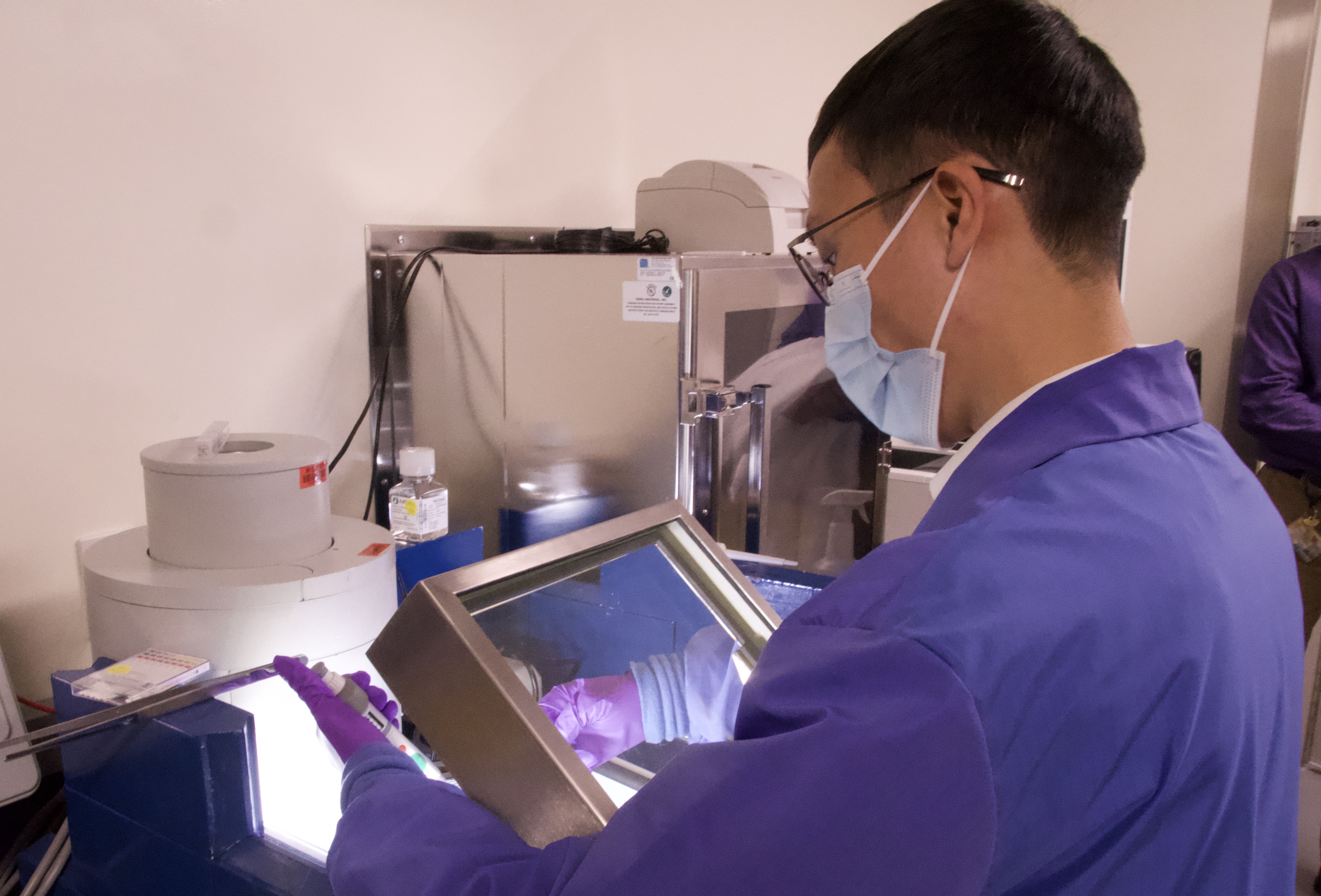Over 500 18F and 150 11C radiopharmaceuticals have been characterized in vivo, a significant number used as probes of biological systems, with applications in oncology, cardiology, neurology, psychiatry and drug development.1 PET tracers are designed to be specific for a defined transport or receptor system, enabling the probing of basic biochemical processes in real-time.
Under the direction of Professor Wenchao Qu, PhD., our radiochemistry facilities specialize in the synthesis, development, and characterization of short-lived positron-emitting radiopharmaceuticals.
Bahl Radiochemistry

- Cyclotron Facility
- The GMP Radiosynthesis Laboratory is dedicated to the development and production of GMP-grade radiopharmaceuticals to support preclinical and clinical PET imaging at Stony Brook University.
- QC laboratory is designed to analyze and assure radiopharmaceutical quality and data.
- Metabolite Lab is equipped with state-of-the-art analytical instruments fully capable of ex vivo blood sampling analysis, including baseline, post-injection and metabolite radiochemical data.
Facility for Experimental Radiopharmaceutical Manufacturing (FERM)
This ISO class 7, GMP-grade laboratory focuses on drug development of novel PET radiopharmaceuticals in support of preclinical PET research at Stony Brook University. It was also designed with the capability for radiopharmaceutical shipping to external collaborators.
Go to page
PET ex vivo Radiometabolite Laboratory (PERL)
The PET ex vivo Radiometabolite Laboratory (PERL) is dedicated to the ex vivo analysis of blood and other tissue samples to support clinical PET imaging with facilities for organic chemistry, radiosynthesis and radiotracer validation. Services provided include baseline and post-injection blood chemistry; assay of whole blood, serum, or plasma radioactivity; ex vivo analysis of radiopharmaceuticals and their metabolites in both blood and tissue samples.
Go to page

1For more information: visit the NIH MICAD database
List or Radiopharmaceuticals
|
Currently In Use; Active Protocols |
||
|
Tracer |
Target Molecules or Biological Processes |
Application Area(s) |
|
[18F]F-AraG |
Activated T cells |
Immunotherapy in Oncology |
|
[18F]Florbetaben |
Amyloid β plaques in brain |
Dementia, Normal Aging |
|
[18F]T807 |
Tau fibrillary tangles in brain |
Dementia, Normal Aging |
|
[18F]LY245 |
k opioid receptors in brain |
Psychiatry (Schizophrenia, Depression, Substance Use) |
|
[18F]VAT |
Vesicular acetylcholine transporter in brain |
Psychiatry, Neurology, Dementia and Normal Aging |
|
[18F]FEPPA |
Translocator Protein in brain |
Neuroinflammation; Activated Microglia |
|
[11C]ABP688 |
Metabotropic Glutamate Receptor 5 in brain |
Psychiatry |
|
[11C]PiB |
Amyloid β plaques in brain |
Dementia, Normal Aging |
|
[11C]UCB-J |
Synaptic vesicle protein 2A in brain |
Synaptic Density (Psychiatry, Neurology, Epiliepsy) |
|
[11C]PS13 |
Cyclooxegenase-1 in brain |
Neuroinflammation |
|
Currently in the Development Pipeline |
||
|
Tracer |
Target Molecules or Biological Processes |
Application Area(s) |
|
[18F]MK6240 |
Tau fibrillary tangles in brain |
Dementia, Normal Aging |
|
[18F]SMBT-1 |
Monoamine Oxidase-B |
Dementia, Reactive Astrogliosis |
|
[11C]LSN317 |
Muscarinic receptors type 1 and 4 in brain |
Psychiatry (Psychotic Disorders, Depression, Substance Use) |
|
[11C]-(+)-PHNO |
Dopamine type D2 and D3 receptors in brain |
Psychiatry and Neurology (Psychotic Disorders, Parkinson’s Disease) |